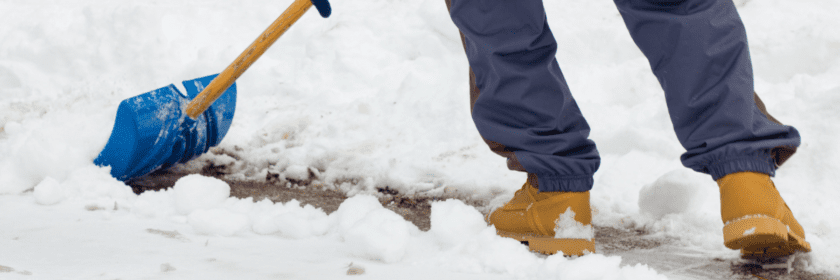A Survival Guide to Winter Moving: The Do’s and Don’ts
15Feb

Winter moving is intimidating; avoid these common mistakes and plan effectively to ensure a smooth move.
There are perks to winter moving; cheaper rates, flexible moving dates, and more time to settle in. However, it’s not always easy, and being ill-prepared can make the experience very stressful. Winter weather can be unpredictable; it’s essential to be proactive and prepare for possible issues before they happen. This survival guide to winter moving will save you from making costly mistakes and help you plan your move to be as efficient and safe as possible.
Don’t wait until the last minute.
It’s always advisable to avoid last-minute moves if you can. However, if you have the time, it’s imperative to start planning in advance when moving in the winter. There are extra dangers and hazards associated with winter moving. Don’t leave your packing and organizing until the last minute. On your moving day, your top priority should be your safety and ensuring your relocation goes smoothly. If you’re distracted, unorganized, and unprepared, it’s easy to overlook crucial details and forget important information.
Do transfer your utilities before moving day.
Always make sure your utilities are working in your new home before moving day. After a long, cold day of winter moving, you’ll need a heated house with access to warm water. Some utility companies take a couple of business days to get everything up and running. Call them ahead of time to schedule, and confirm everything is in working order a day or two before moving to avoid any unpleasant surprises.
Don’t pack your winter necessities and supplies.
It would be best if you kept all of your winter clothes, gear, and supplies somewhere easily accessible. Winter weather is unpredictable, and a warm-weather streak can turn into a snowstorm overnight. Have plenty of extra gloves, hats, socks, and warm clothes on hand at all times. Don’t pack them away into boxes that may get lost or misplaced in the hustle and bustle of moving day.
Do have a back-up plan.
In the weeks and days leading up to your move, keep a close eye on the weather. When hiring a moving company, ask about their protocol and policy for inclement weather conditions. In some instances of severe weather, movers may need to postpone due to blocked roads or other hazards.
Always have a back-up plan for winter moving. Talk to your moving company, real estate agent (or landlord) ahead of time to go over your worst-case scenario options. Determine whether you could stay in your old home for an extra day or two, or if you would need to stay with family or get a hotel.
Don’t neglect snow removal and property maintenance.
It is crucial to your safety and your movers’ safety that sidewalks, walkways, and driveways are free of snow and ice on your moving day. Have plenty of salt or sand and an extra shovel at your old and new property to maintain throughout the day as needed.
Do hire professional winter moving help.
Above all else, hire a moving company to help you. Don’t try to do a solo-move, and don’t spread yourself too thin. Winter moving can be dangerous. Without professional help, you could hurt yourself, damage your belongings or make costly – otherwise avoidable – mistakes.




